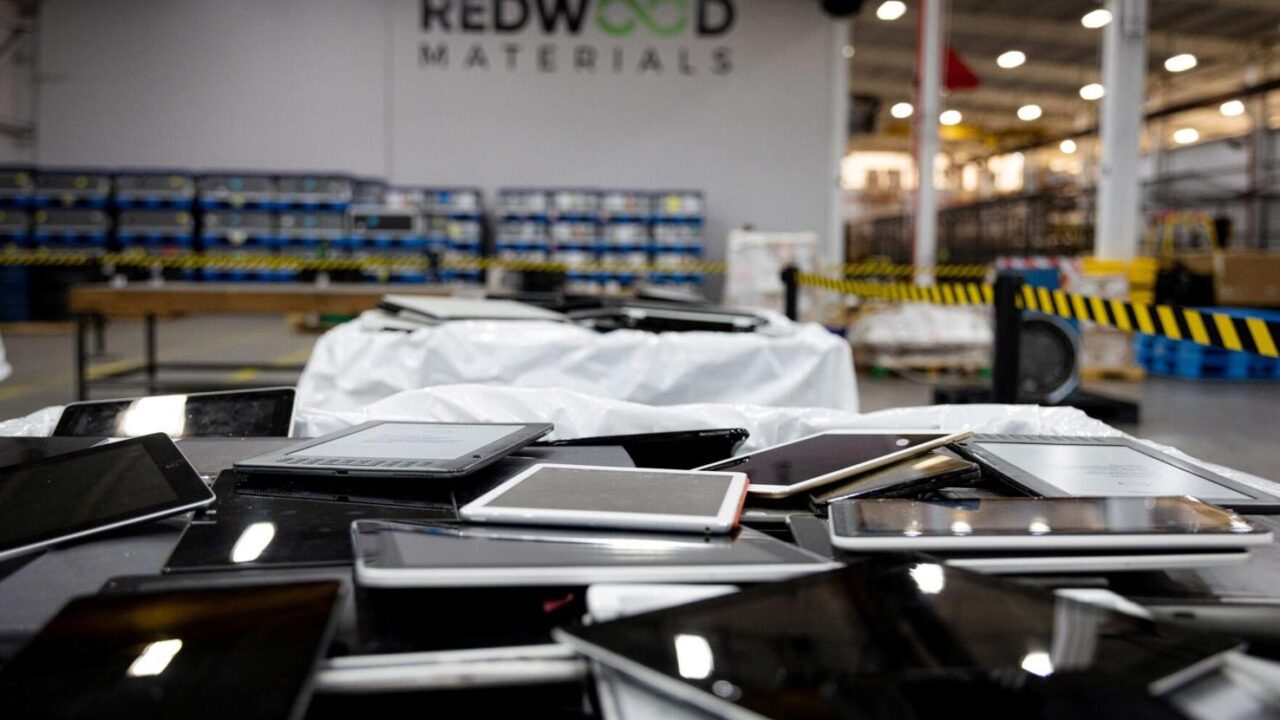SC battery-recycling plant owner breaks ground on $3.5B Lowcountry project
Redwood Materials broke ground Jan. 23 on its $3.5 billion battery recycling site in Berkeley County with the aim of starting to reclaim materials needed to power electric vehicles before the end of the year.
The Carson City, Nev.-based company plans to eventually hire 1,500 workers at its Ridgeville campus to extract minerals needed to make new EV power packs from old batteries that have outlived their usefulness in a range of consumer products.
Those minerals — such as lithium, cobalt and nickel — mostly come from China these days. Redwood hopes its Lowcountry factory and a sister site in Nevada will reduce the U.S. dependence on that country for the key materials needed in EV production.
A rendering shows the Redwood Materials factory planned for the Camp Hall Commerce Park in Berkeley County. The $3.5 billion battery recycling plant is expected to hire 1,500 workers over an eight-year period. File/Provided
The plant it’s building in Santee Cooper’s Camp Hall Commerce Park is reported to be the single largest industrial investment in South Carolina. The Redwoods site also will produce anode copper foil and cathode materials — the two main components in a battery cell.
The first phase of construction will include a warehouse, offices and lab space.
Heavy machinery was on hand to mark the groundbreaking for the Redwood Materials battery recycling facility in Berkeley County. Provided/Redwood Materials
“This is the first step in the development of our battery materials campus, and we will continue building and expanding the campus over the next decade,” the company said in a statement. “We will begin hiring in 2024 with a focus on roles primarily involved in site buildout but expect our operational hiring ramp-up to begin in 2025.”
The company is partnering with readySC — a division of the S.C. Technical College System — for recruitment and training.
Redwood, founded in 2017 by former Tesla executive JB Straubel, plans to produce enough anode and cathode materials at its Nevada and Palmetto State locations to power up to 1 million vehicles annually by 2025 and 5 million per year by 2030.
The company has partnered with some of the biggest players in the automotive and battery industries, including Ford Motor Co., Toyota and Panasonic, and has had several funding rounds from investment groups including Goldman Sachs and T. Rowe Price.
The latest financing in August gave Redwood a valuation of $5 billion. The company also has a $2 billion loan commitment from the U.S. Department of Energy.
“Working with Redwood Materials, we are creating a circular supply chain to optimize logistics, expand refining, and ensure that the valuable metals recovered can be reintroduced into our future vehicles,” Christopher Yang, vice president of business development for Toyota Motor North America, said in a statement when an expanded partnership between the two companies was announced in November.

